CALLED TO HOPE & ACTION IN THE MIDST OF CHALLENGES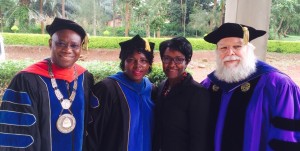
Dr. Margaret Mwenda’s Address
UCBC Commencement
August 8th, 2015
Beni, Congo
Government officials represented here, members of the UCBC General Assembly, UCBC Rector and leadership, Congo Initiative administration, faculty, staff, graduating students, ladies and gentlemen – good morning and welcome to this wonderful celebration of a great achievement by our UCBC graduates.
Let me start by saying how privileged I am to be here this morning. Paul Robinson and David Kasali have invited me in 2013 to come and witness the work that is ongoing here at UCBC but I could not come due to my work schedule. This time around, I am grateful for the support from the Congo Initiative board that made it possible for me to come and represent them and to be a part of this great occasion. I also want to thank the Kasalis and the UCBC community for their hospitality – I have been fed and welcomed and it is indeed an honor to be here.
Let me also say what a beautiful country you have – As we drove from Kasindi to Beni, the beauty of the rain forest, the hundreds of butterflies big and small everywehre, the mountains, the cool, clean air (even though there was a little dust) was breathtaking. Every few meters that we traveled, there was a river or a lake– this place is so green and so beautiful. This reminded me of how the earth was created to be. This is how my village of Meru looked like in the 1970s before we cut down all the trees – the trees are all gone and then water is now drying up.
You may not see the beauty of this land right now because you live here and you see it everyday; but you all must work to preserve and protect this beautiful country for yourselves and for the next generation. Do not wait to tell the next generation how beautiful the forest was – preserve it so that they can see it for themselves.
Today’s celebration is a great milestone in the lives of the graduates. We give God all the glory for making this day possible. Also, without many people represented here, this celebration would not have been possible; so let us acknowledge:
- First, the students who chose to come to UCBC – who chose a different road, a road to transformation. They have worked very hard and are graduating today
- The leadership of the university – David Kasali and the leadership team – for their everyday work that helps students achieve their full potential academically, socially, professionally, and spiritually
- We thank the faculty members who work with students to facilitate their academic success and the work of transforming lives – these are the frontline people who work tirelessly and they are at the core/center of the mission.
- Family members, who have entrusted UCBC with their children, who provide emotional, financial, and all forms of support to students. Without family support the students would not make it.
- Members of the Congo Initiative and general assembly who work tirelessly to support the work that’s being done here.
- And the general community members of Beni who provides valuable services, including employment, for our students
Truly the African proverb that says “It takes a village/a community to raise/educate a child” is fully realized today at UCBC. Without the entire community rallying around to support these students, this work would be too difficult, if not impossible to accomplish. Thank you all so much. Let us give them a round of applause.
Graduates, this is your day – you have worked hard for the years you have been here and today we celebrate your wonderful achievement. Congratulations class of 2015! You have done it!
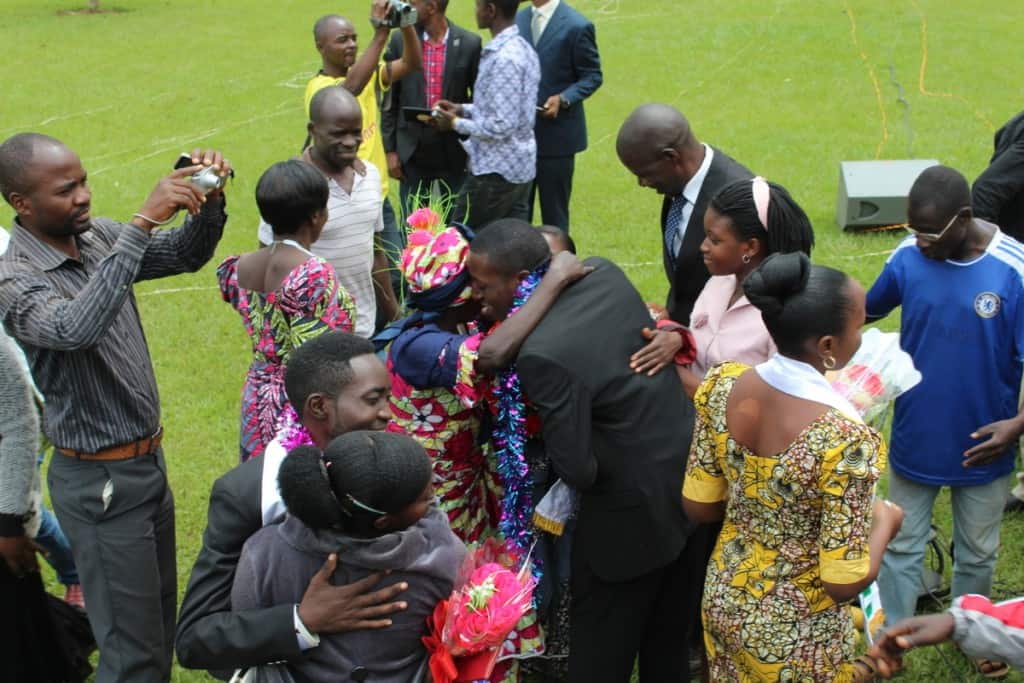
MESSAGE: CALLED TO HOPE AND ACTION IN THE CONTEXT OF CHALLENGES
Today, as you graduate and step out of UCBC to serve and transform your respective communities and the Democratic Republic of Congo at large, I want to remind you that you have been “Called to Hope and Action in the Context of Challenges.” The question I pose to you today is:
Will you do the Best You Can, With What You Have, Where You Are Called?
As we ponder upon this question today, I want us to reflect on three things today as you prepare to leave this place and go on to your various areas of your calling:
The first thing to reflect upon is the calling: You have been called to serve/transform in various capacities – every one of you has a calling no matter how small or big.
The second thing to reflect upon is the preparation: each one of you has been prepare for the calling – in various ways
And the last thing to reflect upon is the action: Each one of you must take action to accomplish the work you have been called to.
Let us examine the first point – the calling.
Part 1: You have been called
I want to begin by retelling one of the most well-known stories of the old testament – a favorite bible story about the calling of Moses. The story opens dramatically in Exodus 3 where Moses, grazing his father-in-law’s flock approaches a burning bush in the wilderness of Midian around Mount Horeb – the mountain of God.
In this wilderness, dry and desolate, Moses meets God, who introduces himself to Moses and calls him to a task. God says to Moses:
“I am the God of your father, the God of Abraham, Isaac, and the God of Jacob. I have seen the oppression of my people… I am sending you to Pharaoh to bring my people out of Egypt.”
God calls Moses to a very difficult task:
- First, to approach Pharaoh and ask him to let God’s people go. Keep in mind, the Israelites were Pharaoh’s, and indeed Egypt’s main source of free labor. This was a threat to the economic well-being of Egypt.
- Second, Moses was called to lead a multitude of people (12 tribes) with their herds of sheep, goats, cattle, camels, chickens, and their house hold items. Could you imagine leading the group through a desert into a land that is promised? A land they had not glimpsed with their eyes?
This is what God calls Moses to: a calling that seems insurmountable, impossibly difficult, frightening, terrifying and unachievable because Moses knew only too well the danger of approaching Pharaoh with such a request and the challenge of leading a multitude through a hostile desert he only knew too well.
Like Moses, you are called today (not with a burning bush, or thunder and lightning); you are called to serve God in this beautiful land of the Democratic Republic of Congo which presents a number of big and seemingly impossible challenges.
You see, you are called to “transform – as you have been transformed. “ You are called to transform your workplace, your community, and this beautiful, resource rich country of the Democratic Republic of Congo –. This is not an easy task given the historical, political, economic, and social contexts and challenges of the Democratic Republic of Congo.
An analysis of the status of DRC contexts to which you are called reveals significant challenges as well as opportunities, some of which are unique to the DRC and other which are common challenges on the Continent of African.
- Let me highlight a few of the challenges, which are known to you as well, and the context within which you will work to transform this nation:
- Conflict: One of the challenges that DRC has gone through over several decades is that of internal conflict. More than 25 year of conflict have undermined the potential of this country. But DRC has made great strides in political stabilization since 2005 – the international media is no longer talking about the conflict hotspot that was the DRC. Relative peace prevails. However, strengthening security throughout the entire nation remains a challenge – especially in East Congo – where we are today. Conflict, no matter how sporadic, not only harms the communities but it also discourages investment in the local area by local and other investors. This is indeed a challenge within the context you are called to serve.
- Corruption: A second challenge, that is more insidious and almost invisible but does great damage to countries is corruption. The World Bank estimates that corruption reduces a country’s economic growth rate by about 1% points per year (African Union –Advisory Board on Corruption, 2011). So, many countries in Africa and other parts of the world would be much further ahead economically than they are today had it not been for corruption.
The government of the Democratic Republic of Congo has made great effort to implement a zero tolerance strategy on corruption but the results remain unsatisfactory – DRC–corruption perception index score is 22 out of 100 and it ranks 154th out of 175 according to Transparency International Report (Transparency International, 2014 Corruption Perception Index).[1]
The DRC is not alone in the challenge of corruption. My own country Kenya, ranked at 145th, and scores at 25, could have been miles ahead economically had it not been for corruption in high and in low places.
You see, corruption adversely affects long-term economic growth, through its impact on investment, taxation, public expenditure and human development (e.g. education, health and technology are negatively affected)
Corruption also negatively affects equitable distribution of resources across populations, increases income inequality, and ultimately results in lower levels of human development.
Finally, corruption negatively affects the overall governance and business environment (Chene, 2015).
- Other challenges include high levels of unemployment, gender inequality, and poverty:
- While the progress in the economic growth rate of DRC stands at 8% GDP (gross domestic product) as of 2014, unemployment and gender inequities prevail.
- Unemployment, especially for women and young people, for instance, remains high. The World Bank estimates from 2013 show unemployment of 15-24 years olds to be at 14% (The World Bank, n.d.). These are significant challenges which create conducive environments for increased crime rates, idleness, and a waste of creative potential and productivity.
- Gender imbalance in terms of schooling and labor force participation is still a challenge. Women and girls are underrepresented in schools and in work places in spite of the fact that DRC has ratified many international conventions on the advancements of women’s rights (e.g. Convention on the Elimination of all types of Discrimination against Women) and Parliament passed a bill on gender parity (Mbambi & Faray-Kele, 2010).
Why do we need equitable participation of women in the labor force?
I can answer this question with another question: if you have a soccer team of 11 players, would you play with only half of the players and leave out the other half? This is what happens when women are left out of the labor force.
Research shows that educated women tend to be healthier, participate more in formal labor market, earn more income, and they provide better health care and education to their children – all this improves the wellbeing of all individuals and can lift households and communities out of poverty (The World Bank, Girls Education, 2014).
Thus, when you educate a woman, you educate a community.
This is not an easy task to do – but this is what you are being called to my dear graduates.
- Poverty levels remain high in the DRC (and on the continent in general). In the DRC, in particular, poverty exists despite the fact that the economy is growing at an impressive GDP growth rate of 8.7% and despite the fact that this country is endowed with enormous resources (minerals, rain forest, fertile land, great land mass…you name it, it is here). One might believe that when God started the work of creation, He started with DRC and by the time He got to other countries, there was not much left – there is abundance in this country. Sadly, despite this endowment, the country ranks 186 out of 187 in terms of the human development index (which examines life expectancy (based on health), education, and per capita income)
- Life expectancy: DRC – 50 years (World Health Organization
- Literacy levels: adult (61% for ages 15 and above) – (UNDP Reort on Human Development, 2014 United Nations Development Programs, Human Development Reports, 2014).
- Per capita income: $220 as of 2012 despite this being one of the wealthiest countries in terms of resources (world bank)
Poverty is a big challenge that comes with many other challenges. But what is disappointing is the fact that poverty exists within plenty – this is a great paradox.
This, dear graduates, is the context and the reality you are called to – this is the wilderness (figuratively speaking) you are being called to work in and to transform. The task, like Moses’ task, seems impossible, insurmountable.
However, there is another, brighter side of this story. It is not all gloom and doom. There is a lot of hope as the Democratic Republic of Congo, and indeed the entire continent of Africa, is at the CUSP of significant growth and positive development and change. You see there is a refocus on the continent of Africa – a continent that was until recently seen as a destination for AID dollars is fast becoming an investment destination. The continent of Africa has been reported to have the fasted growing economies in the world in terms of GDP growth rates:
Sub-saharan Africa –averages 6%; United States -3%; Europe – 1.5%; other emerging markets e.g. China – 5% (International Monetary Fund)
This is the reality – African economies are growing while the rest of what we know as the developed world is slowing down.
In the DRC for example, great opportunities exist in that:
- DRC is endowed with vast resources: – 2.3 million square kilometers of beautiful land (equivalent to almost two thirds of European Union); 80 million hectares of this is arable land
- More than 1,100 different minerals and precious metals
- Among the world’s largest producers of cobalt, copper, diamonds, tantalum, and tin
- The country holds half (50%) of the world’s deposits of cobalt, 20% of diamonds (the country is richly endowed)
- Since 2001 the country has been on a recovery trajectory from conflict and internal instability that have affected social and economic livelihoods of citizens – with this stability has come the establishment of governing bodies such as parliament, senate, and provincial assemblies and as a fledgling democracy, the country has had two elections and is in its way to recovery from conflict. That my friends is good news.
- In 2009, the economic growth rate stood at 2.9% and as of 2014, it has reached a growth rate of 8.7% – a growth rate which is above average in the African context and above USA, European, and Asian countries (The World Bank, Democratic Republic of Congo, n.d.).
It is apparent that while DRC and other African countries are at an upward trajectory economically, the rest of the developed world (developing) is not doing as well – a good example is Greece.
You see, there is good news coming from DRC and Africa – there is great hope and great opportunities, in the midst of challenges.
My friends, it is to this context that you are being called to transform your communities and your country:
- To ensure that education opportunities are provided for all and that there is gender equity in education and workforce participation; so that the full potential of every man and every woman is achieved to advance this nation.
- to ensure that resources and the riches that God has bestowed upon this country benefit the children of this land and eradicate poverty from your communities and your country
- to embrace a zero tolerance attitude towards corruption and to shun corruption at all cost that cripples progress at all levels
- and to ensure that your generation and the generation to come benefit most from the resources that this country has.
Indeed, your calling to transform this nation is not easy – but you have been transformed here at UCBC so that you can transform your communities and your nation.
THIS IS YOUR CALLING!!
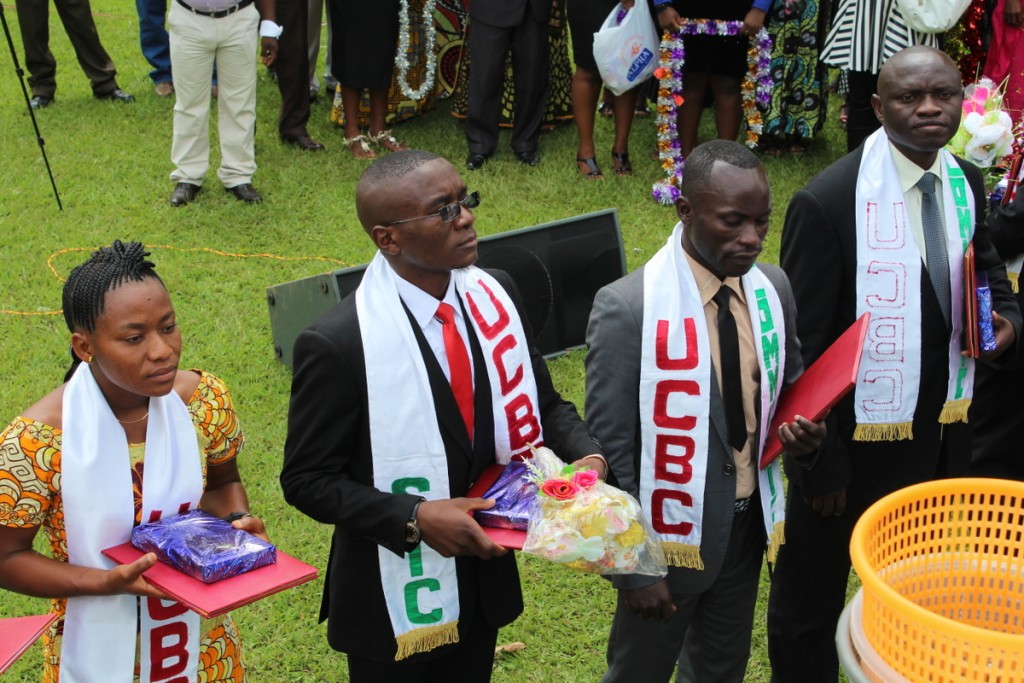
This brings me to the second point to reflect upon:
Part II: You have been prepared
When God calls you to a particular task, work, mission, such as the one he called Moses to and the one He is calling you to today, He prepares you accordingly.
You see from Moses’ example, we see that preparation had taken place ahead of the calling:
First and foremost, Moses was raised by Pharaoh’s daughter. This tells us that he knew his way around royal, powerful people and around the palace. He knew the protocols, practices, and schedules of meals, prayer, sacrifice, bathing, bedtimes at the palace. He was no stranger to the palace.
Secondly, Moses had been educated in the ways of the Egyptians – being that he was raised by royalty. He probably spoke the language of Pharaoh first of all and knew the culture as he had been immersed in it from childhood.
Third, Moses got an education about the wilderness, how to take care of sheep and goats and camels among the Midians and also how to navigate the wilderness of Horeb. This happened as he lived among Medianites, married Jethro’s daughter, and tended Jethro’s flocks in the wilderness. You see, Moses had been educated in the desert as well and therefore knew how to navigate the desert. He also got a lesson on humility – you see, Moses had been a prince at the palace but now he was a shepherd (working for Jethro).
Lastly, Moses being a Hebrew, must also have been schooled in the ways of Hebrews. He understood that the Hebrews were his people – when he killed an Egyptian for the sake of his people.
Therefore, Moses was well prepared for the task of approaching Pharaoh to demand for the release of the people; he was prepared with the knowledge of Egyptian education; and he had an education in the desert through which he would lead the people and navigate the desert; and he also knew the culture and religion of the Israelites, and he had preparation to be humble. At the time of his calling, Moses may not have known it, but he was ready. God had prepared him!!
Similarly, God prepares each one of us before sending us.
Let me share with you how God prepared me to be an educator – for the work that I do:
- Educated through the Kenyan education system up to university and thoroughly prepared to be a secondary school teacher. After two years of teaching, I moved to the USA for a master’s degree
- Here is where my lessons in humility started.
- I went from being a secondary school teacher (which was considered prestigious) to:
- Cook and dish washer in the college kitchen and dining room – something I had not done as a job my entire life. Can you imagine the transformation I underwent from being a secondary school teacher to a cook/dishwasher?
- Grounds person – cutting grass using lawn mowers and pulling weeds from flower beds from 7am to 3pm.
- Unloading trucks at a distribution center – working at nights – from 11pm to 7am – and going to school during the day. I would unload two or three of those big china trucks that you see here from Sunday night to Thursday night.
- Waiter at a restaurant – where I took orders and served people food and clean tables.
- Finally, cleaning professor’s offices and cleaning toilets in the administrative offices.
- I finally completed my masters and my education in humility and went back to Kenya a changed person.
- This my friends, was training for life.
- This work taught me humility – humility to work in any capacity and to do the best where I was to serve people
- It taught me empathy for people who work in manual labor and without whom all work would come to a stand still – can you imagine how UCBC would be without someone to tend the lawns or cook and clean?
- It taught me that all work – formal and informal, skilled or unskilled, visible and invisible, is important, has a purpose, and has dignity. It taught me to appreciate all levels of work and workers.
You also have been prepared in a similar fashion. You not only have academic training, but also the:
- Work Program – which provides you with social skills and other experiences outside the classroom.
- One of your UCBC students gave a testimony saying that the work program, which he had resisted but did anyway because it was required, taught him humility.
- Service learning – from which you learn various skills from the community, interact and solve problems in partnership with communities, and build bridges between the university and the community.
- You have been prepared through spiritual transformation – to know that in all things to put God first
Therefore, in your calling to transform you communities and your country, remember that God has prepared you, and will continue to prepare you, for the task before you.
The last thing we reflect upon is the action.
Part III: you must Take Action.
You have been called to transform; you have been prepared; YOU MUST TAKE ACTION!!
When Moses was called, he realized the enormity of his task and fear took over, as we see in his response to God:
“Who am I that I should go to Pharaoh…. I have never been eloquent, neither in the past nor since you have spoken to your servant. I am slow of speech and tongue…” (Exodus 4:10). He essentially was telling God, “Please send someone else.”
Moses was overwhelmed by two emotions that hinder our ability to take action: fear and self-doubt.
Fear cripples and immobilizes while self-doubt reduces your ability to achieve your full potential and diminishes your self- worth. We all have heard that inner voice that says we are not good enough, not strong enough, and are incapable of doing the things were dream of and are called to.
As young people who are just about to step out of UCBC to serve your communities, you will experience fear and doubt as you encounter difficult tasks. But you have to realize it is normal, many of us have had similar experiences. Remember though that you have been prepared amply for your calling and that you will have a lot of support along the way and God will be with you.
In this story of Moses, we see God promising Moses that He would be with him. God says to Moses: “Who gave human beings their mouths? Who makes them deaf or mute? Who gives them sight or makes them blind? Is it not I, the Lord? 12 Now go; I will help you speak and will teach you what to say.” (Exodus 4:11)
We know that God provided Moses with guidance, he provided food, water, and wisdom and also with Aaron for support. Moses took action after this, and led the Israelites out of captivity.
In our lives today, we have role models who have fearlessly taken action to transform the lives of their communities. One of my most inspiring roles models is Wangari Maathai – the first African Woman to win a Nobel prize for her work with the environment.
- She was born in a humble village in rural Kenya; was educated in Kenya and in the USA;
- First woman lecturer, and indeed female professor at the university of Nairobi and in Kenya. But she was a humble and God fearing woman.
- At the university she constantly encountered discrimination because she was a woman – for example, women employees were not given housing because the assumption was that their husbands would provide. She fought against this policy and it was changed.
- In the midst of challenges and resistance, she organized and mobilized people (mostly women) to plant millions of trees throughout Kenya to restore the land that had been devastated by deforestation.
- Her key achievement, however, is mobilizing people and women protect an indigenous forest – Karura forest in Nairobi which was a watershed for much of the water consumed in Nairobi – and to protect a park (green recreational space) within Nairobi from being grabbed by private developers to build a highrise office buildng.
- For this she suffered a great deal of beatings and time in jail. But she persisted.
- Without Wangari Maathai, a single woman, who chose to save the community resources, we would not have Karura forest and Uhuru park in Nairobi today.
It took the action of one woman to save a forest, a park, and a deteriorating environment!! Wangari Maathai took action fearlessly.
You also must take action – individually or collectively, in small ways and in big ways – to transform your respective communities and the nation of DRC.
So dear graduates God is calling you today to transform this beautiful land of DRC; through God’s help you have been prepared through your academics, work program, and spiritually here at UCBC; and with this in mind, you must take action.
Conclusion & Send Off
In closing, I want to share with you a story of a little humming bird told by Wangari Maathai – the late Nobel Peace Laureate.
She tells the story of a little hummingbird (a small bird which weighs 2.5 grams and is 7 cm long – it can fit in my one hand). This little bird lived a huge forest with other animals – elephants, buffalos, rhinos, crows, marabou stock, lions, you name it – all types of animals lived in this forest, big and small.
One day, there was a great forest fire – all the animals got out of the forest to escape from the danger. They stood at the edge of the forest in fear, sadness, and dismay about the great loss of their habitat, the loss of their home. The strong mighty elephants, the tall elegant giraffes, the aggressive buffaloes, the majestic, powerful lions, the laughing hyenas (this time they were not laughing), the small mice, the mischievous monkeys, the big vultures and many other animals and birds (big and small were there) gazing in dismay and horror and hopelessness…overwhelmed.
The humming bird, in the meantime, was there but was busy. She flew to the river, filled her little beak with water, and flew over the forest, dropping the small drops of water over the huge flames and smoke. She flew back to the river, filled her beak, and dropped the water over the flames. Back and forth to the river and back to the forest she went tirelessly…and the other animals noticed and asked her:
“What in the world are you doing? Can’t you see your effort is in vain? Do you really think you can put out this big forest fire with the little drops of water from your beak? What a waste of time and effort. Stop wasting your time – this is too big to handle!!”
Now, listen carefully to what the little bird said in response, “I am doing my best I can with what I have!!!”
The question for you, graduates, today is, “will you do the best you can, with what you have, where you are called?”
As you leave this place today, and as you strive to do your best with God’s help, go forth with this blessing, in the words of Lutheran vespers benediction:
May the Lord go before you to show you the way;
May He go beside you to encourage you;
May He go behind you to give you strength;
May He go above you to watch over you;
And may He be within you to give you peace.
AMEN!!
References
African Union –Advisory Board on Corruption (2011). AU-ABC Strategic Plan 2011-2015. Retrieved from http://www.auanticorruption.org/resources/view/au-abc-strategic-plan-2011-2015
Chene, M. (2014). The impact of corruption on growth and inequality. Transparency International.
Mbambi, A.M. & Faray-Kele, M. (2010). Gender inequality and social institutions in the D.R. Congo. Women’s International League for Peace and Freedom and Common Cause, UK.
The World Bank (n.d.). Unemployment, youth total (% of total labor force ages 15-24). Retrieved from http://data.worldbank.org/indicator/SL.UEM.1524.ZS
The World Bank. (2014). Girls’ education. Retrieved from http://www.worldbank.org/en/topic/education/brief/girls-education
The World Bank: Democratic Republic of Congo. (n.d.). Country overview. Retrieved from http://www.worldbank.org/en/country/drc/overview
Transparency International (n.d.). 2014 Corruption Perception Index Report. Retrieved from https://www.transparency.org/cpi2014/results
United Nations Development Programs, Human Development Reports (2014). International Human Development Indicators: Congo (Democratic Republic of the). Retrieved from http://hdr.undp.org/en/countries/profiles/COD
[1] Based on expert opinion around the world; based on corruption in the public sector.
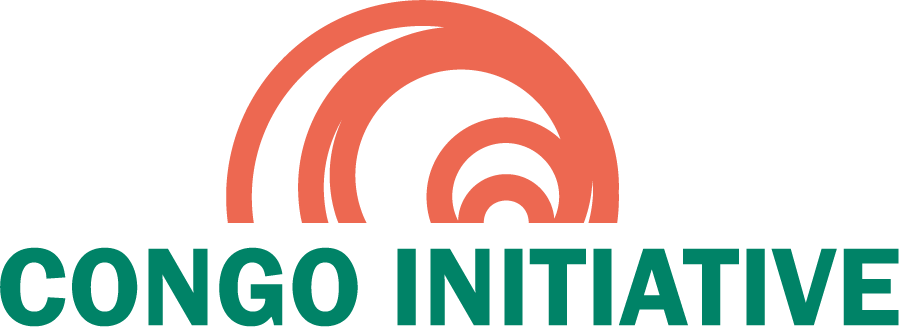
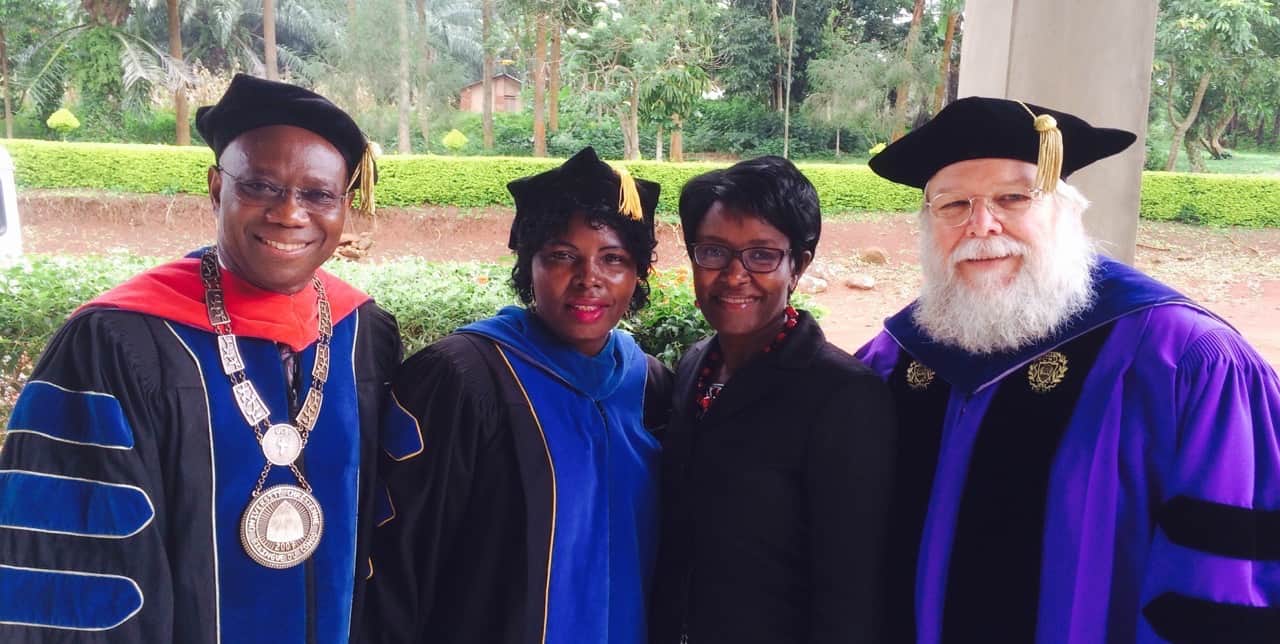
Leave a Reply